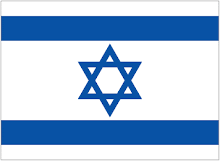A Saudi Arabian princess who had an illegitimate child with a British man has been granted asylum here after claiming she would face the death penalty if she returned to her country.
The woman, who is married to a member of the Saudi royal family has been granted anonymity and was given refugee status after she told a judge her affair made her liable to death by stoning. She also feared the possibility of an honour killing.
She met her English boyfriend during a visit to London and became pregnant by him the following year.
Fearful of her elderly husband’s reaction, she returned to the UK to give birth in secret.
The arrangement is one of a number of claims for asylum brought by Saudi Arabian citizens which are not openly acknowledged by either government, according to the Independent newspaper.
The secrecy is thought to exist so as not to highlight the persecution of women in Saudi Arabia as this would be viewed as open criticism of the House of Saud and create embarrassment for both governments.
The woman was granted permanent leave to remain in the UK after the Immigration and Asylum tribunal allowed her appeal.
She told the court she feared she and her baby would face flogging and stoning to death under Sharia law if they returned home.
Stoning is a technique used on married people convicted of adultery. The majority of executions are carried out by beheading in a public square.
Adulterers in the Gulf state can also face punishment by hanging or beheading.
There were at least 102 executions of men and women last year and according to human rights group Amnesty International, there are at least 136 people awaiting execution. Since 1990, 40 women have been executed.
Amnesty reported last year that one woman was currently facing the possibility of execution by stoning for adultery. She had been married to a Saudi who had died six years earlier. The woman was held in 2005 after giving birth to a girl.
The Home Office would not comment on the case and calls to the Royal Embassy of Saudi Arabia in London were not returned.
The case has echoes of a similar situation in 30 years ago when another member of the Saudi royal family was executed after admitting adultery.
In 1977, 19-year-old Princess Mishaal bint Fahd, who was unmarried, was killed by gunshots to the head.
Her death is thought to have been ordered by her grandfather, the king's older brother.
In 1980 a docu-drama, Death Of A Princess, was made of what had happened. The Saudi authorities tried to get it halted and when they failed they expelled the British ambassador. They also withdrew several hundred members of their royal family from Britain and cancelled export contracts worth millions.
Incidents such as the present one where the princess has been granted asylum put the relationship between Britain and Saudi Arabia under further strain.
Three years ago, a Serious Fraud Office inquiry into alleged bribes paid as part of a military aircraft deal between the two countries was halted after the intervention of then Prime Minister Tony Blair.
Saudi Arabia has consistently attracted controversy over its attitude towards women. Two years ago there was an international outcry when a woman was sentenced to 200 lashes and six months in jail after being gang-raped. She was seen to have been in the wrong because she'd been unaccompanied when she got into a car with a former boyfriend.
Eventually, because the attention drawn to the case, she was pardoned.
That same year, the country’s King Abdullah II was booed during a state visit to Britain by demonstrators criticising Saudi Arabia’s human rights record.
"While dictators rage and statesmen talk, all Europe dances — to The Lambeth Walk."
Monday, 20 July 2009
Saudi Princess Granted Asylum in Britain
From The Daily Mail:
Subscribe to:
Post Comments (Atom)
.jpg)












































































1 comment:
Nice Article...
I loved this post..
Thank you -decided.
You do really analyze and hit the nail on the head. We have been fools to believe in this organization.
http://www.government-grant.us
Government grant
Post a Comment